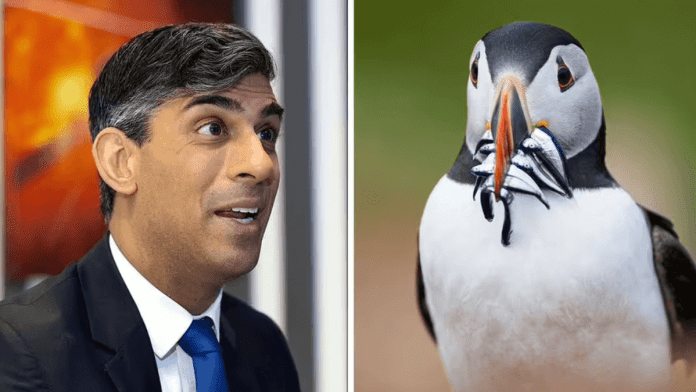News in Brief:
– UK closes Scottish waters and English North Sea to sand eel fishing to protect seabirds like puffins despite EU opposition.
– Conservationists support the move citing declines in seabird populations and call for EU backing to safeguard marine biodiversity.
The UK government’s recent decision to shut down sand eel fishing in Scottish waters and the English North Sea has been made to safeguard the survival of Britain’s puffins and other seabirds, which heavily rely on sand eels for feeding.
However, this move sparked controversy with the European Commission, which contested the decision, eliciting strong reactions from conservationists, according to a news report.
The Commission’s challenge to the UK’s closure of sand eel fisheries has been met with criticism, with conservationists labeling it “shameful.” Sand eels are a crucial part of seabirds’ diet, including puffins and kittiwakes, and the closure aims to support their dwindling populations.

Conservation groups rally behind closure
A coalition of conservation groups supports the UK government’s decision, citing the importance of protecting under-pressure wildlife. Sand eels are vital for various species, including seals, porpoises, whales, haddock, and Whiting. The closures aim to address the decline in species dependent on sand eels, such as puffins and kittiwakes.
This decision affects not only marine life but also local fishermen and farmers. Sand eels are used in livestock feed and farmed salmon, highlighting the interconnectedness of marine ecosystems with local economies.
Consultations have shown overwhelming public support for the closure, with 95% of respondents in England and 97% in Scotland backing the move. This reflects the growing awareness and concern for the conservation of marine life among the public.
Despite widespread support, challenges remain, particularly from the EU. Conservation groups urge the EU to reconsider its position and support the UK’s efforts to protect its seabird populations. The closure of sand eel fisheries represents a crucial step towards seabird recovery and the preservation of marine biodiversity.
As the UK faces opposition from the EU, conservationists emphasise the importance of standing firm on this vital issue. The closure of sand eel fisheries is seen as a lifeline for seabird populations, providing hope for their future survival amidst multiple threats.



